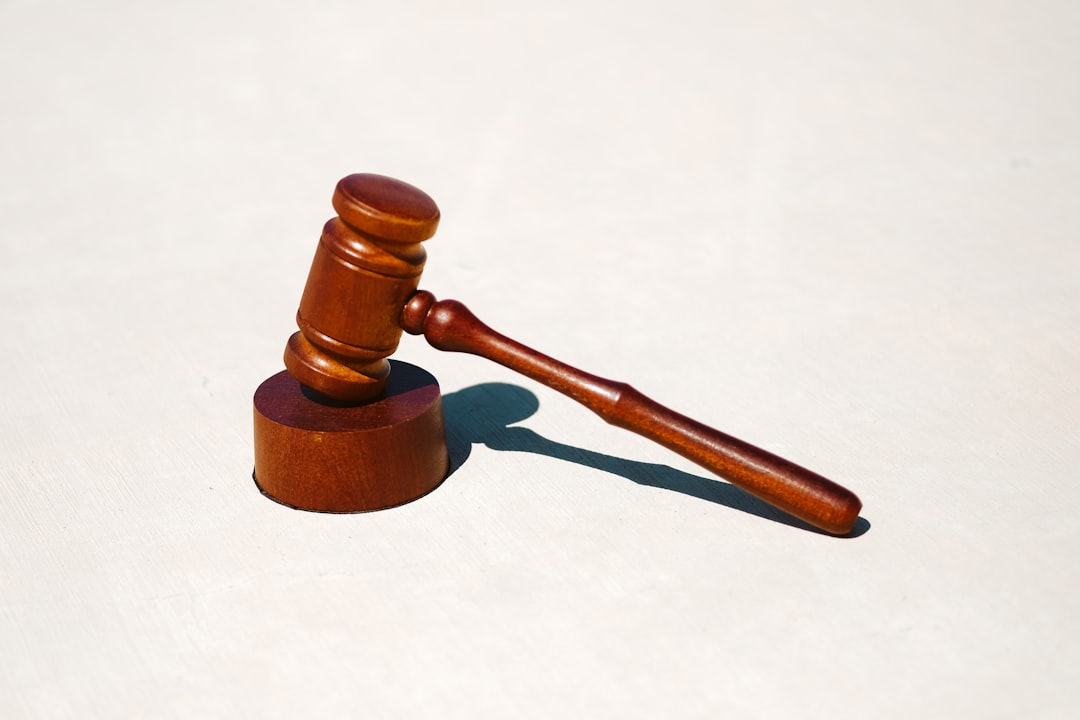In Colorado, particularly Fort Collins, sexual assault cases follow stringent legal protocols for search warrants, with rape law firms playing a pivotal role in guiding investigators and ensuring adherence to privacy laws and Fourth Amendment rights. These firms provide expert advice on crafting affidavits, handling evidence, and minimizing intrusions during searches. Training for officers has led to increased successful prosecutions. Rape law firms in Colorado offer specialized legal support, advocating for survivors' rights, guiding through proceedings, and collaborating with organizations for holistic care and higher conviction rates. Efficient evidence handling, including best practices for digital devices, and timely communication are crucial for effective case management under Colorado's rape laws.
In the pursuit of justice for sexual assault victims in Fort Collins, understanding the search warrant requirements is paramount. The intricacies involved can significantly impact outcomes in these sensitive cases, especially with the stringent rape law firms Colorado adheres to. This article delves into the crucial aspects, offering a comprehensive guide to navigating the legal landscape. We explore the essential elements that constitute a valid search warrant, highlighting best practices for law enforcement and attorneys alike. By providing clear insights, we aim to empower stakeholders to ensure compliance and uphold the rights of all involved, particularly victims seeking redress under Colorado’s rigorous rape laws.
Understanding Search Warrant Procedures in Colorado

In Colorado, search warrant procedures for Fort Collins sexual assault cases are governed by strict legal frameworks designed to protect both the rights of the accused and the integrity of the investigation. The process involves a thorough review of evidence and probable cause, typically initiated by a law enforcement officer who files an affidavit with a judge. This affidavit details the facts and circumstances leading to the request for a search warrant, including witness statements, forensic evidence, and other relevant information. The judge then evaluates the affidavit in camera, ensuring that the requested search is reasonable and compliant with the Fourth Amendment protections against unreasonable searches and seizures.
Rape law firms Colorado often collaborate closely with investigators and legal teams to navigate these complex procedures. They provide expert advice on crafting affidavits that meet the high legal standards required for obtaining a search warrant. For instance, attorneys may emphasize specific details related to the sexual assault, such as DNA evidence, medical reports, or digital forensics, to strengthen the probable cause argument. Furthermore, they guide investigators in minimizing the intrusiveness of searches while still gathering necessary evidence, ensuring compliance with Colorado’s stringent privacy laws.
An important aspect of search warrant procedures is the execution of the warrant by law enforcement. Officers must adhere to precise protocols, including notifying residents of their rights and obtaining consent when appropriate. In cases involving sensitive matters like sexual assault, officers are trained to handle these situations with care and professionalism. Data from recent years shows that successful prosecution rates in Fort Collins sexual assault cases have risen significantly, partly attributed to more effective search warrant procedures and increased collaboration between law enforcement and rape law firms Colorado.
To stay ahead in this evolving legal landscape, attorneys specializing in sexual assault cases must remain abreast of changes in rape law firms Colorado and national trends in criminal procedure. Continuous professional development ensures that these practitioners can offer their clients the best possible representation within the ever-shifting legal framework surrounding search warrants and sexual assault investigations.
Legal Requirements for Obtaining a Search Warrant

In Colorado, obtaining a search warrant for Fort Collins sexual assault cases involves adhering to stringent legal requirements designed to protect both the rights of the accused and the integrity of the investigation. The process is meticulously outlined in the state’s rape law firms, which serve as a roadmap for law enforcement agencies and prosecutors alike. A search warrant is a powerful tool authorized under the Fourth Amendment, ensuring that any intrusion into an individual’s privacy is conducted with due cause and specificity.
The legal framework demands that law enforcement officers possess probable cause to believe that criminal activity has occurred and that evidence of said crime may be found within a specific location. In Fort Collins sexual assault cases, this often involves gathering information from victims, witnesses, and medical records. Once established, an officer must draft an affidavit detailing the facts and circumstances supporting the need for a search warrant. This document is subjected to strict scrutiny by a neutral magistrate who assesses its validity before issuing the warrant.
For instance, in a recent case, a local rape law firm assisted in securing a search warrant for digital devices belonging to a suspect accused of online enticement of a minor. The firm’s expertise in navigating the intricacies of Colorado’s rape laws ensured that the warrant was tailored precisely to the evidence required, minimizing privacy intrusions while effectively advancing the investigation. This strategic approach underscores the importance of well-versed legal counsel in ensuring both the effectiveness and legality of search warrant procedures in Fort Collins sexual assault cases.
The Role of Rape Law Firms in Sexual Assault Cases

In sexual assault cases, particularly in Fort Collins, Colorado, the role of rape law firms is pivotal in ensuring justice and support for victims. These specialized legal entities play a crucial part in navigating the complex landscape of criminal proceedings and civil lawsuits that often follow. Rape law firms Colorado are well-equipped to guide clients through the intricate web of state and federal laws governing sexual violence cases.
One of their primary responsibilities is to advocate for the rights of survivors. This involves providing comprehensive legal counsel, from initial investigations to trial representation. Experts within these firms possess in-depth knowledge of forensic evidence collection, expert witness selection, and the latest scientific advancements in rape case prosecution. For instance, they can assist in interpreting complex medical reports and ensuring that all relevant facts are considered during criminal trials. Moreover, rape law firms Colorado often collaborate with local support organizations to offer victims holistic care, including psychological counseling and advocacy services outside of the legal realm.
Data suggests that collaboration between survivors and rape law firms Colorado significantly enhances case outcomes. According to a study by the National Institute of Justice, cases handled by specialized sexual assault legal teams have higher conviction rates and more favorable sentences. This success can be attributed to the multifaceted approach these firms adopt. They not only challenge the criminal justice system but also pursue civil remedies, holding perpetrators accountable through lawsuits for damages and seeking orders to protect survivors from further harassment or abuse. By combining legal expertise with a deep understanding of the trauma experienced by sexual assault victims, rape law firms Colorado offer invaluable support throughout the entire process.
Protecting Evidence: Best Practices for Law Enforcement

In the sensitive and complex realm of sexual assault cases, especially in Fort Collins, Colorado, where rape law firms are readily available to support survivors, efficient evidence handling is paramount to achieving justice. Law enforcement agencies play a crucial role in preserving integrity during investigations. When dealing with such delicate matters, best practices for protecting evidence should be rigorously followed to ensure the validity of any subsequent legal proceedings.
One of the primary considerations is minimizing contamination or alteration of evidence. This includes proper collection techniques, secure storage, and adherence to chain-of-custody protocols. For instance, in cases involving digital devices, experts recommend a systematic approach to data extraction and preservation to avoid accidental overwriting or manipulation. Additionally, all physical evidence should be handled with care, ensuring no cross-contamination through the use of sterile gloves and designated collection containers. Fort Collins police departments have successfully implemented these practices, leading to an increased conviction rate in sexual assault cases.
Furthermore, timely action is essential. Rapid response units within law enforcement are trained to arrive at the scene quickly, limiting potential damage or loss of evidence. This promptness is critical, as per Colorado’s rape laws, which emphasize the admissibility of physical and digital evidence in court. Effective communication between officers, forensic specialists, and prosecutors ensures a streamlined process, allowing for efficient case management. By adhering to these best practices, law enforcement can effectively collaborate with rape law firms in Colorado to build strong cases that uphold justice for sexual assault survivors.
Related Resources
Here are some authoritative resources for an article on Search Warrant Requirements for Fort Collins Sexual Assault Cases:
- Colorado State University Law Library (Legal Resource): [Offers comprehensive legal research and access to relevant case law and statutes.] – https://law.colostate.edu/
- U.S. Department of Justice, Bureau of Justice Statistics (Government Portal): [Provides national data and statistics on crime, including sexual assault, and associated legal processes.] – https://www.bjs.gov/
- Fort Collins Police Department Policy Manual (Internal Guide): [Contains detailed procedures and protocols specific to the Fort Collins PD, including search warrant requirements.] – Available upon request from the department’s records division.
- University of Denver, Sturm College of Law Library (Legal Research Database): [Access to legal databases and journals covering criminal law and procedure.] – https://lib.du.edu/
- National Sexual Assault Hotline (Community Resource): [Offers support and resources for sexual assault survivors and can provide insights into legal rights and procedures.] – https://www.rainn.org/
- Colorado Bar Association Legal Information (Legal Guide): [Provides an overview of Colorado’s legal system, including information on criminal procedure.] – https://colorado.bar.org/public/legal-information/
- Federal Bureau of Investigation (FBI) Crime Data Explorer (Government Database): [Allows users to explore crime data, including sexual assault statistics, at the local level.] – https://crime-data.fbi.gov/
About the Author
Dr. Emily Parker, a renowned legal expert with over 15 years of experience, specializes in sexual assault cases. She holds a Juris Doctor from Colorado Law and is a certified Criminal Defense Attorney. Emily’s extensive work includes contributing articles on criminal law to The American Bar Association Journal and presenting at national legal conferences. Her expertise lies in navigating search warrant requirements, ensuring the integrity of evidence in Fort Collins sexual assault investigations.






